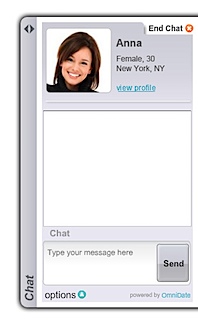 The virtual dating concept has “officially” been around for several years. I’ve been following the virtual dating scene because I think there is something there that some singles will find useful.
The virtual dating concept has “officially” been around for several years. I’ve been following the virtual dating scene because I think there is something there that some singles will find useful.
Today you will find that there are a handful of companies competing for singles’ virtual dating dollars, ranging from OmniDate’s Flash-based offering to several downloadable applications (Seriously, a downloadable dating client? Get in the browser, quick!)
I’ve wailed on the sector and its participants for years, because as someone who knows a hell of a lot about virtual worlds and what singles want, what I’m seeing delivered is not exactly what singles are clamoring for. Theres a few research reports flying around, but I talk to dating site owners every day, and the truth of the matter is that virtual dating needs to evolve before it starts to really take off, from the dating and and singles’ perspective.
OmniDate, the developer of a plug-and-play virtual dating application for dating sites, understands the concept of evolution. Recently they added a plug-in chat to their offering, which is good news. They also have some new customer wins, which is good for everyone involved. If OmniDate legitimizes the sector and proves that virtual dating works and makes dating sites money, they just might embrace it. Right now the equation is halfway-solved.
I keep reading that virtual dates tend to last substantially longer than chats, with the proportion of virtual dates lasting over 60 minutes being almost twice as high as that of chats. If there are ads in that chat, or product placements or people can click to buy their date a rose or a song or some other bling, we’ve got some revenue flowing, a more interactive exciting environment and something more akin to a win for the dating industry.
Chat is a good start, but let’s remember to keep the ball moving. Trial Omnidate and their competitors, kick the tires, and most of all, tell them what works and what doesn’t. Vendors absolutely need to hear their potential customer’s feedback. It’s not like they build Facebook or Quicken in a vacuum and just rolled it out to the public one day (Well maybe FB). Build, test, fail, iterate, test and eventually it all comes together and everyone is generally satisfied with the results and the service will be adopted. Thats how the Internet works.

